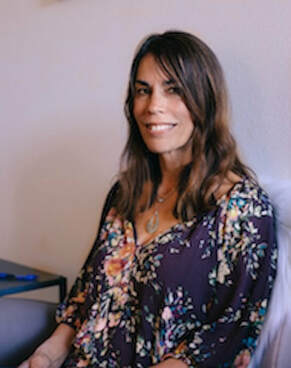 You may have heard this interesting word Enneagram or you are already a self-reported expert. In short, the Enneagram is a psycho-spiritual map indicating how we experience the world from a particular point of view. In my work as a psychotherapist with Type 4 clients, explained in detail later, the Enneagram’s wisdom outlines a significant map for our work. As a practicing psychotherapist for thirteen years, my practice has attracted a particular kind of client. They are creative, smart, sensitive, romantically oriented, a fluid sense of sense, and an anxious-ambivalent attachment style. It became clear that the clients walking in my door identified as Enneagram Type 4s. The Enneagram literature says a Type 4 is the adjectives I mentioned above with a particular developmental path. I will explain in greater detail the type 4 client. The main motivation consistent through most of their life is to have personal significance and to exist. The defense strategy is introjection which means taking in others and surroundings to feel a sense of connection. The object relations theory is that both parents felt mis-attuned and alien to the child. The attention goes to what is missing and comparison or envy to others. There is a familiarity with melancholy and feeling misunderstood and dismissed. Hopefully this gives you more of the feeling of the experience of this client. When I administer the initial assessment most individuals who identify as this type will have a feeling of being seen and discovered. Most will start their investigation on their own into the depths of the Enneagram wisdom. In our work it will allow for precise pointers to their experience both internally and externally and the key issues will be addressed through our work. It provides a psychic map while also giving hints at their development as cited in The Wisdom of the Enneagram by Russ Hudson and Don Riso. In my experience, if a therapist and a client share a reliable and valid map the work can become very deep in a shorter period of time than it may take to truly understand the nuanced lens of a client. With this particular type the most effective part of the therapy is the experience of being seen, understood, and validated as this is the missed experience in childhood and throughout life. I also have a major advantage because I identify as the same type so my own journey is also critical to the unfolding of my clients. I am walking a very similar path and it helps to know the terrain from the inside. In reflecting on one particular client she feels very dissatisfied in her work and comes in week to week with ideas about what additional degrees she can pursue or what additional field she can entertain. The process is very frustrating for her and brings up a lot of destabilization and shame for not feeling content and having a clear picture of her identity. If I hadn’t been so immersed in the Enneagram and did not have a familiar feeling myself I may go on this exploration with her. Instead I was able to ask a question after a session or two when I noticed the pattern. What makes you feel less than? This opened up in experience in the way she views most of her life. The career pursuit shifted to more of a connection with self and with all of her life. As another example, many of my clients will feel very attracted to people who are unavailable. And they may also get uncomfortable with people who are very available and present. When exploring we can see how familiar the unavailable pattern is with their primary care taker relationship along with how they feel in their own connection with themselves. Their longing is a way to keep them from their core issue of abandonment so they do not have to experience the feelings again of the pain of being dismissed and not being considered. A lot of their energy is a defense against this core wound. Since we both know this terrain we can drop deeper into the experience to feel into the parts that have not been met. In another example I have a client who had abuse and neglect as a child. When this client experiences not being seen and understood by their partner they will often go into a feeling of deep rage for not being attuned and feeing dismissed. If they are not aware of this pattern they will blame and act out on their partner. However if they know that a nurturing mother part can be developed within themselves they can meet the attachment wounding from childhood. Knowing the Enneagram we are able to understand their needs as well as a guess at their partners defense and wounding to allow the client to realize their needs will not often be met by their partner. I hope this brief article has peaked your interest on researching more about the Enneagram. It has been the most accurate tool for my own discovery and continues to provide a lot of insight for my client’s and my own unfolding. I also believe it is invaluable to work with a therapist of your own point of view so there is more of an inside out understanding. And if you want to have a more in-depth dialogue feel free to reach out at [email protected]. Tamra runs a private practice in Boulder, facilities (facilitates) supervision groups with Marc Azoulay and co-teaches at Naropa University and student taught at CIIS. She has an upcoming personal transformation app coming out that is a result of a collaboration with Uri Talmor.
3 Comments
|
REVIEWSA place for local therapists to share their resources for training, books and other experiences that nourish their practices. Archives
March 2019
Categories |
Proudly powered by Weebly
 RSS Feed
RSS Feed